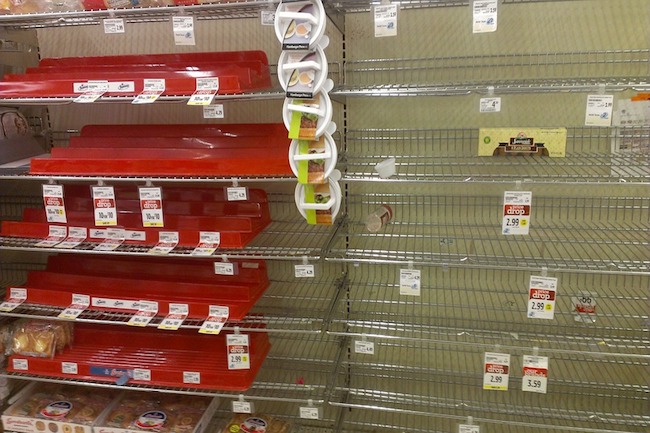A Permanent Shortage of Everything by Daniel Greenfield for GateStone Institute
Globalists were wrong. The world isn’t flat.
- The world isn’t flat, it’s all too round…. That’s why Islam is once again at war with Europe, Russia is invading Ukraine, China is relaunching its empire, and the ‘flatland’ is experiencing a dimensional shift.
- Globalization advocates had just recreated Marxist central planning with a somewhat more flexible global model in which massive corporations bridged global barriers to create the most efficient possible means of moving goods and services around the planet. Borders would come down and cultural exchanges would make us all one ushering in the great union of humanity.
- Market consolidation due to government regulations has left a handful of companies sitting atop the market. When one of them, like Abbott for baby formula, has a hiccup, the results are catastrophic; others like Procter & Gamble, which controls about half the menstrual products market, don’t have to worry about losing market share to competition. Similar consolidation in food, paper products and supermarkets have replaced a dynamic economy with cartels.
- Behind all the brands on the product shelves is a creaky Soviet system in which a handful of massive enterprises interconnected with the state lazily crank out low-quality products from vast supply chains that they no longer control and feel little competitive pressure to perform better. The only thing that is still American about the supermarket experience is the advertising.
- Interdependence hasn’t even led to the world government that globalists wanted, but global chaos in which impotent western powers try to talk the rest of the world out of fighting to avoid being swamped by refugees, high energy bills and empty shelves in supermarkets.
- After selling off American economic sovereignty, globalists proved unable to maintain global stability. Lacking the will to actually stand up to China, Iran or Russia, all they can do is hold more international conferences and build up a useless multinational bureaucracy.
- Say what you will about the League of Nations, but it only had 700 employees in Geneva. The UN’s 44,000 employees are just the tip of the iceberg in the huge ranks of multinational organizations who all claim to be upholding the international order while running up the tab.
First it was baby formula, now there’s a tampon shortage. Tampon prices are up 10% due to the rising price of oil affecting the cost of plastic and higher cotton prices due to mask manufacturing and the war in Ukraine. A whole lot of fertilizer comes out of Ukraine and Russia. So does neon, which is used to make semiconductor chips. The chip shortage is shutting down car plants.




